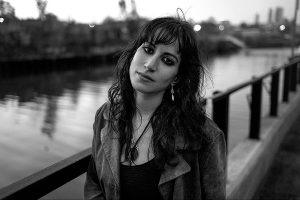John Colin Marston in Christian Science Monitor:
 Author Hannah Lillith Assadi revels in the contradictions of her identity: She was born in the United States to a Jewish mother and a Palestinian father. Her debut novel, “Sonora,” is a paean to the vexing process of how a second-generation immigrant struggles to come to terms with herself and history. Israeli-American novelist and poet Moriel Rothman-Zecher explores similar themes in “Sadness Is a White Bird,” revealing the agonizing internal struggle of an American-Israeli man who cannot balance his friendship with two Palestinians and his enrollment in the Israeli army. Both are examples of Millennial writers with Israeli and Palestinian heritage living in the US who are forging novel perspectives on the conflict.
Author Hannah Lillith Assadi revels in the contradictions of her identity: She was born in the United States to a Jewish mother and a Palestinian father. Her debut novel, “Sonora,” is a paean to the vexing process of how a second-generation immigrant struggles to come to terms with herself and history. Israeli-American novelist and poet Moriel Rothman-Zecher explores similar themes in “Sadness Is a White Bird,” revealing the agonizing internal struggle of an American-Israeli man who cannot balance his friendship with two Palestinians and his enrollment in the Israeli army. Both are examples of Millennial writers with Israeli and Palestinian heritage living in the US who are forging novel perspectives on the conflict.
“Increasingly it’s people who have lived abroad, who have experienced other ways of being in the world, that are looking critically at their own societies,” says Ranen Omer-Sherman, the JHFE endowed chair in Judaic studies at the University of Louisville in Kentucky. Mr. Rothman-Zecher feels that in his novel “the identities are much more woven and complicated” than an easy division of Israelis and Palestinians. “Americanness and the characters’ connection to America makes it become this sort of neutral zone, that shared space that transports the three of them far away,” he says. As conflict continues between Israel and the Palestinian territories, cultural exchange – the solution many have lauded as a way to end the conflict – has also suffered. Israeli high school teachers were displeased after the Education Ministry decided not to allow Dorit Rabinyan’s 2014 novel, “All the Rivers,” to be taught in Israeli high schools. The novel follows a love affair between a Palestinian man and Israeli woman in New York City.
More here.
